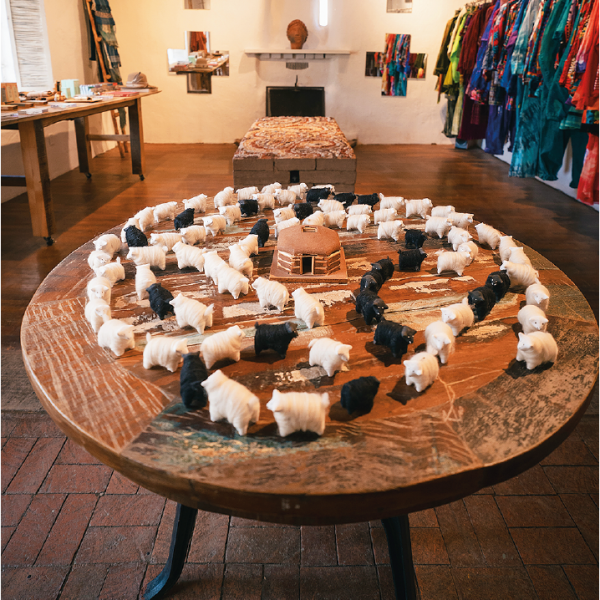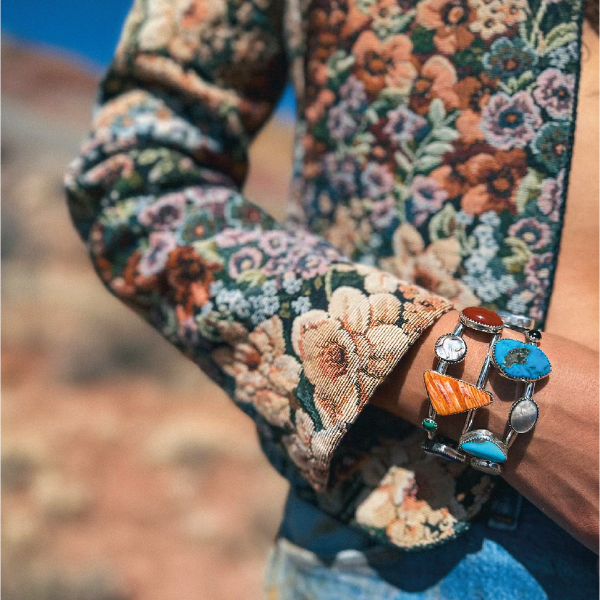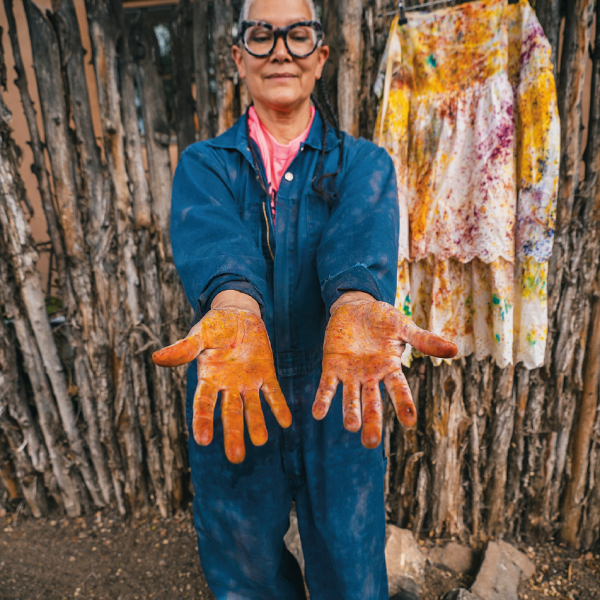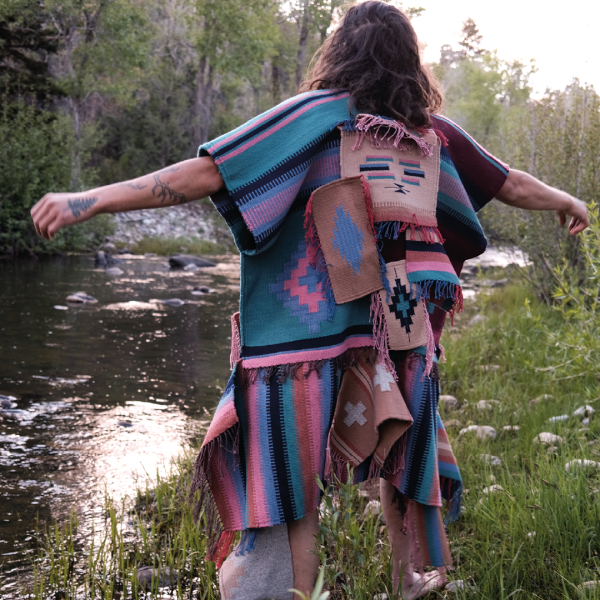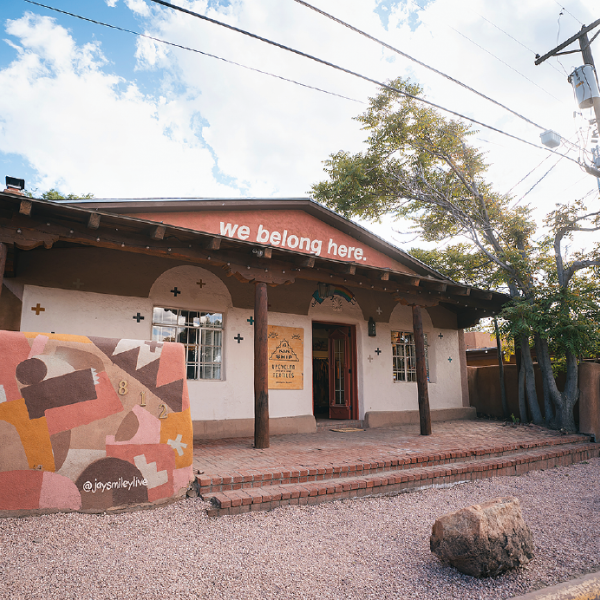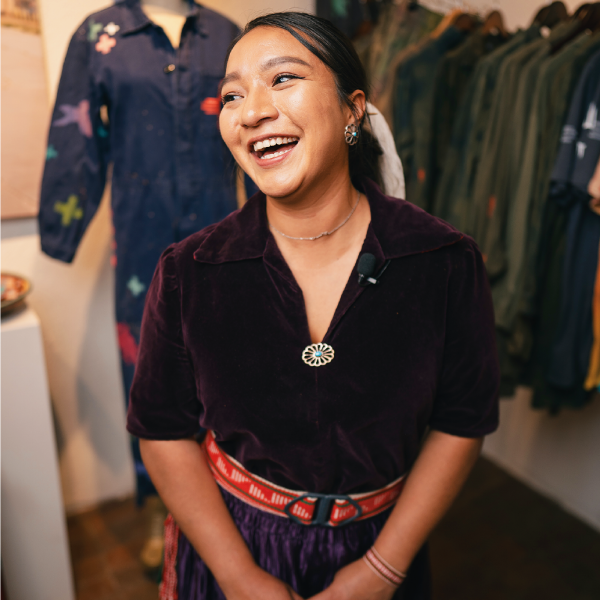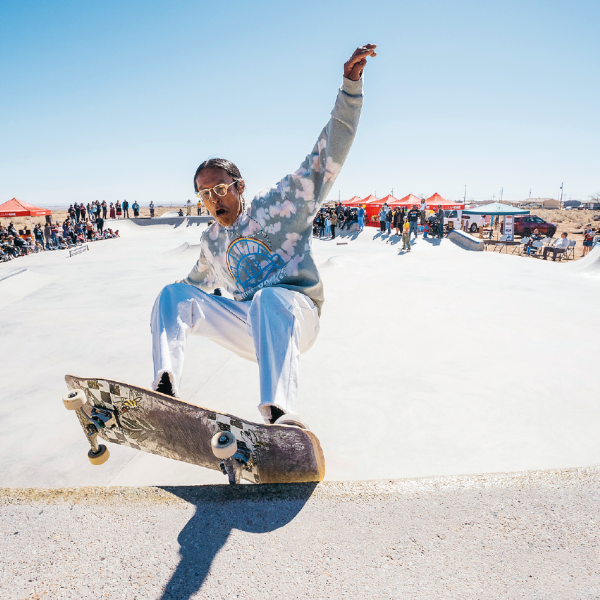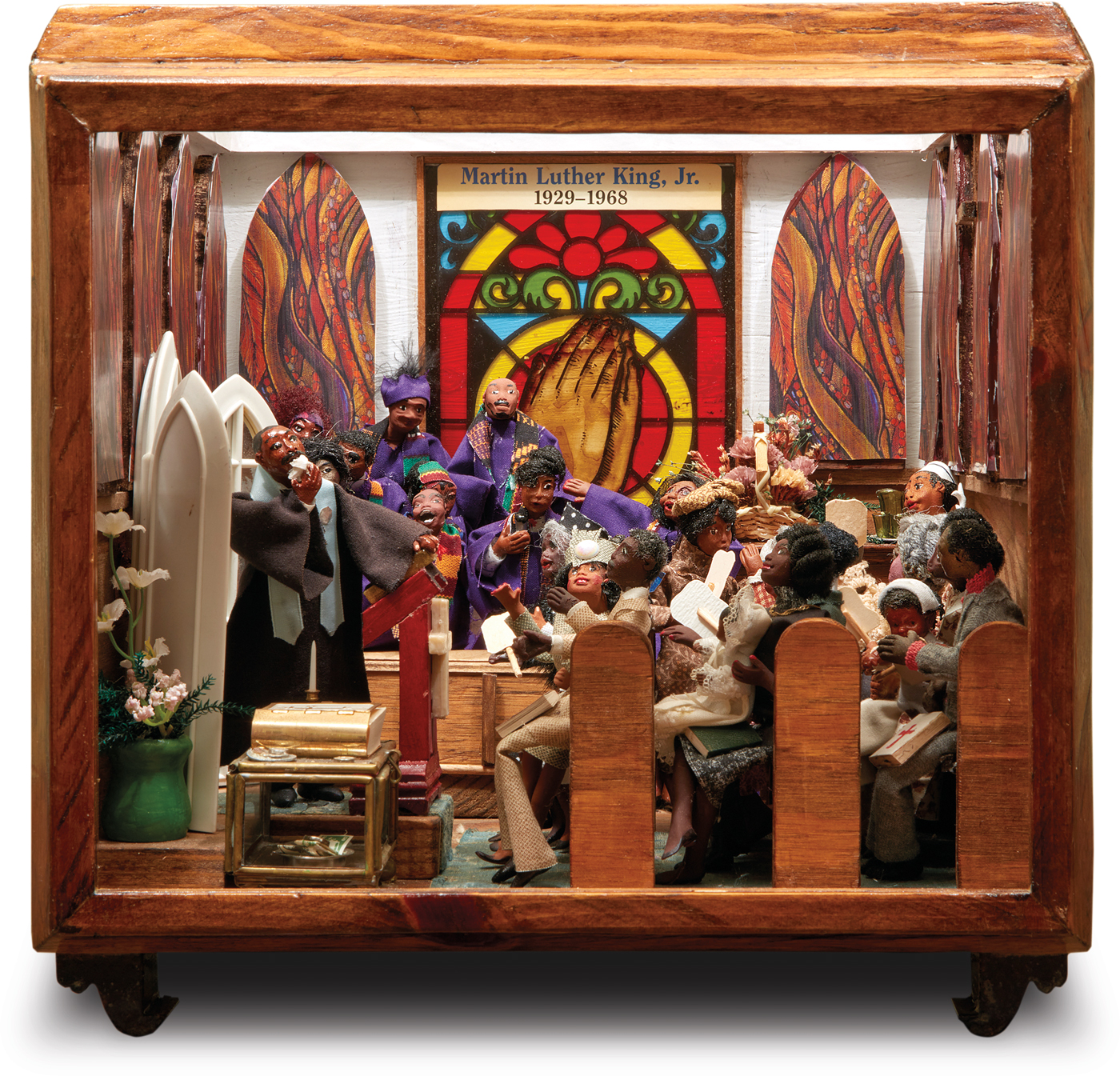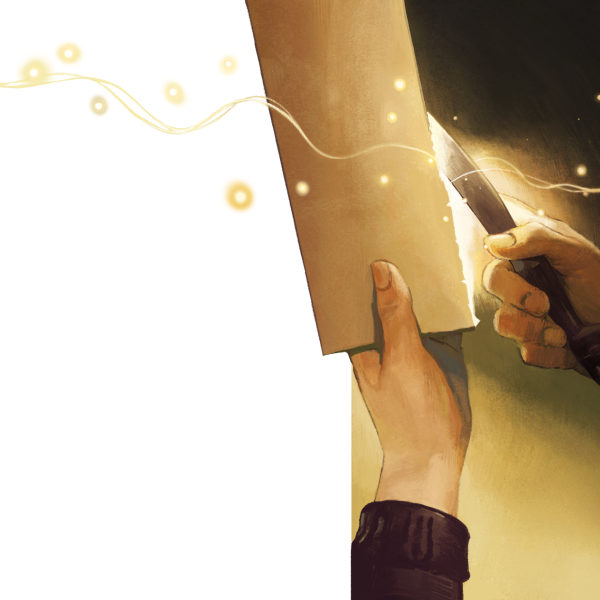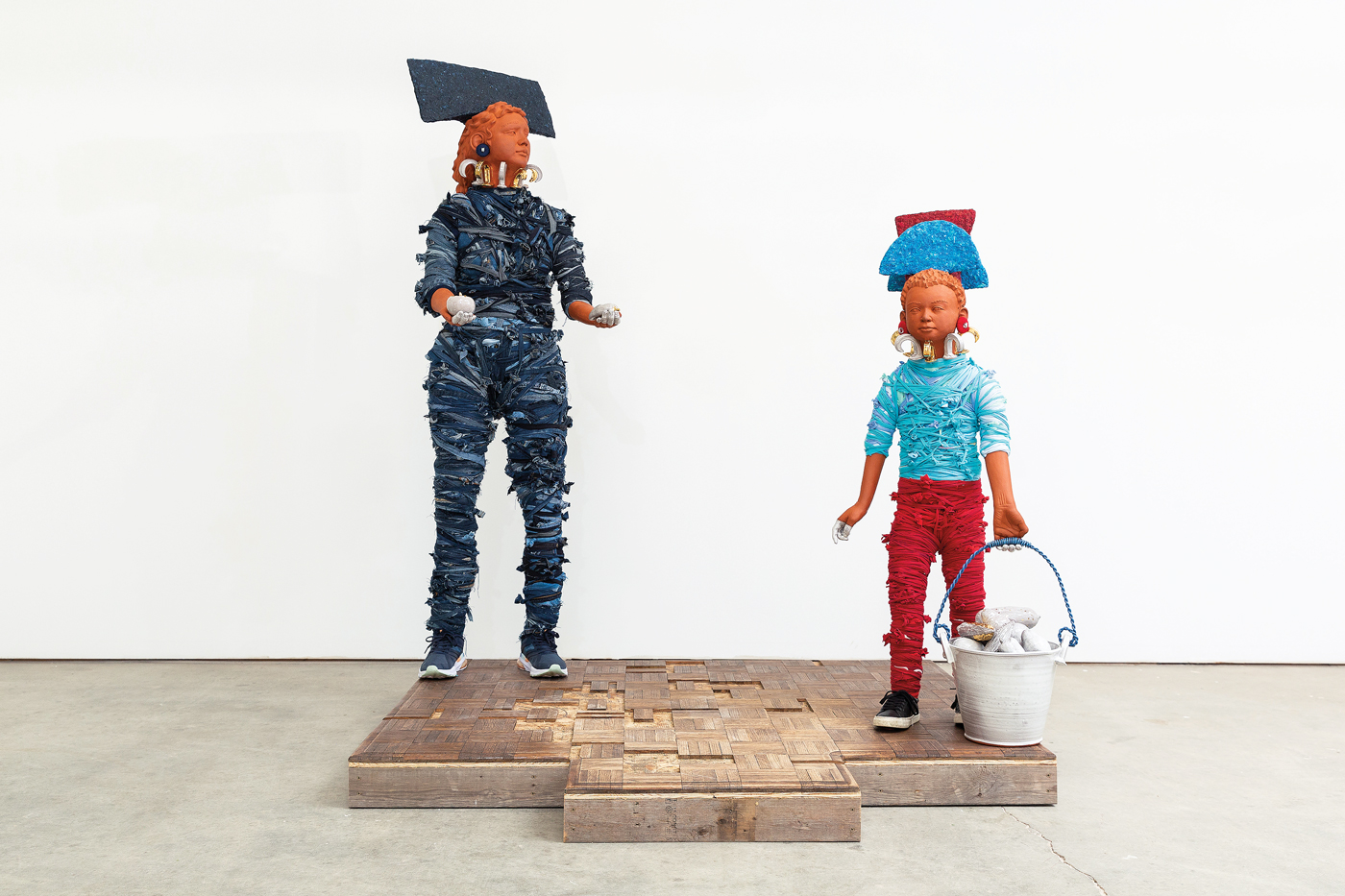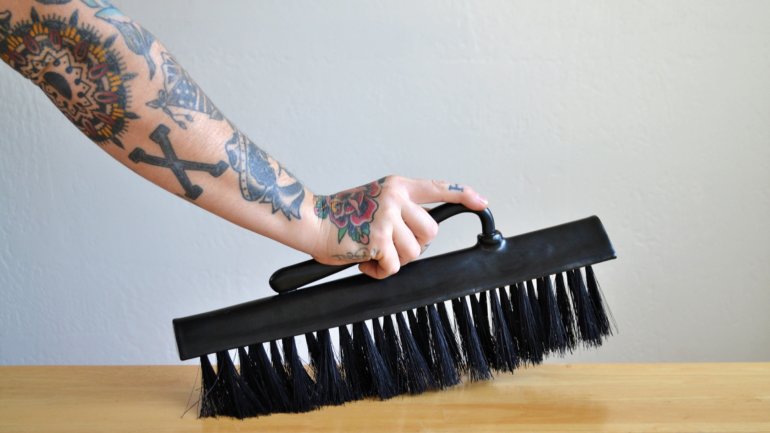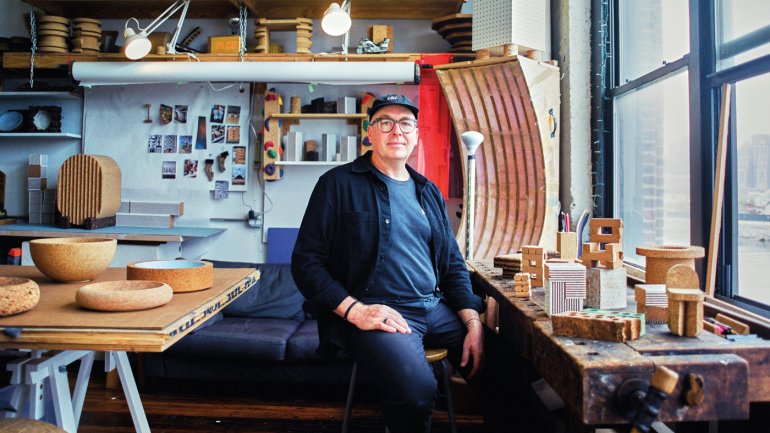The year 2021 brought more transformation for Denet Deal and her company. In addition to handling a business during a health and economic crisis, she learned there was concern in Native communities about her use of the word orenda. Roughly translated, orenda refers to a certain spiritual energy in people and their environment. The original form of this anglicized Oneida word has deep meaning for the Haudenosaunee or Six Nations Iroquois people; the Oneida are one of the six nations. So Denet Deal began learning about intertribal appropriation and how to address it “with integrity and care.” Understanding the importance of being open to learning, she traveled east to meet with many Haudenosaunee tribal leaders and linguists to offer, she says, her respect and humility. “Together we undertook a three-month process of relationship building, intentionality, and healing,” she says, noting that cultural protocol is essential to reclaiming one’s indigeneity and to intertribal relationships.
“Through that beautiful learning, the brand evolved into its forever name of 4KINSHIP,” says Denet Deal. “Orenda was the beacon that brought me home and 4KINSHIP is really the vessel and purpose for my life’s journey. When you say you’re Native, that comes with responsibility, and I’m here to do that work. This learning process has been such a gift. Considering the impact of 4KINSHIP’s work through an Indigenous lens—thinking beyond the now and me to always offer a creative way to be in service to community and in harmony with all relations for future generations—the organization is working to put cultural wisdom into motion.”
In 2022, Denet Deal moved 4KINSHIP to Santa Fe, seeing an opportunity to represent Native voices in a distinct way, and in a highly visible, high-traffic location. “It’s the mecca of Native American culture and art,” she says of the state capital, noting that she doesn’t think the city is doing enough to make Native American businesses a permanent fixture of its commerce. “In 2023 there are no initiatives in Santa Fe to get Native businesses in a permanent way. No grants, no resources. The talent just isn’t sufficiently recognized. Instead, the city invites Native artists to share their work via temporary permits, pop-ups, and Indian fairs. We belong here, our beautiful art deserves permanent space, and our community deserves reciprocity.”
Johanna Nelson, director of Santa Fe’s Office of Economic Development, acknowledges that the city does not currently have specific incentives to support Native artists but works to connect them with state and nonprofit resources. “We are in the process of developing a strategic action plan for our office,” she says. “Supporting Native entrepreneurs will be a key component—gathering input and making sure we have strategies identified.”
Denet Deal recognizes the long-term significance of opening a Native-owned space on Canyon Road. “I felt it was necessary to be representative in an area that’s considered a luxury, higher-end experience, and offer this space to younger talents,” she says.


